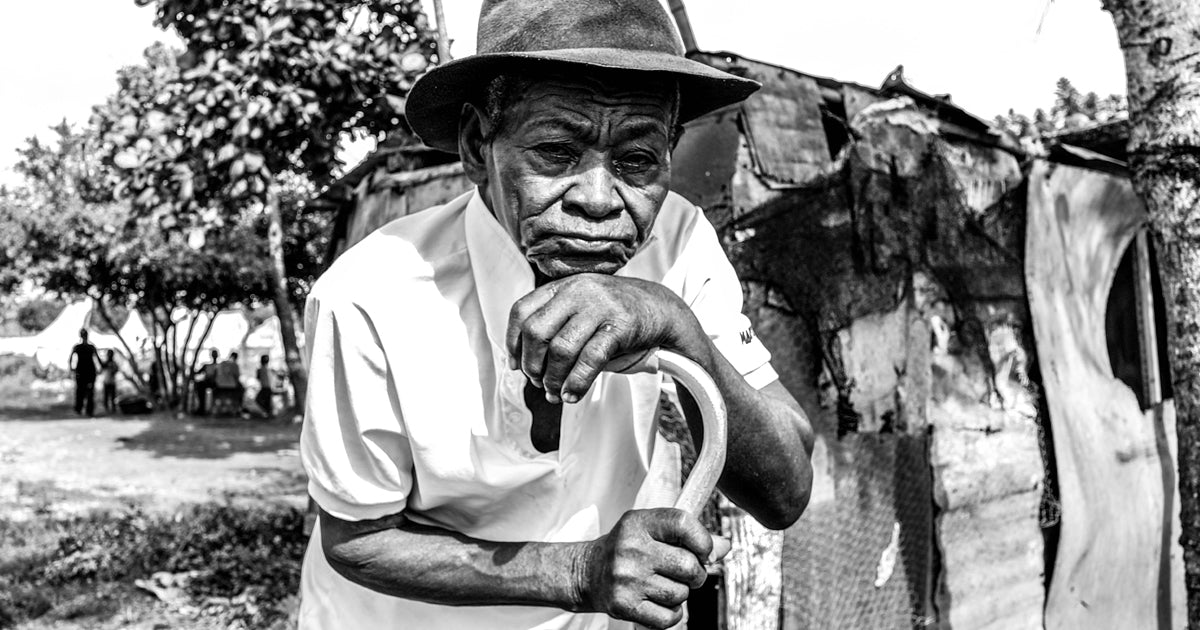FAIR Talks | We Are HUMAIN

The kids are so proud of their uniforms. Glorified tickets to school, they’re a skin most kids can’t afford. So, they share, alternating the days they each get to go to school. Most don’t make it past 4th grade.
A woman relishes a pocket-sized polaroid of her and her daughter, the novelty of capturing a moment in time lost on the giver. To the woman, it was a rare gift to have a 2-inch frame of their lives preserved, a reminder of the beauty of single moments in a life that’s felt mostly like one extended, homogenous memory.
Antonio has a hunger to travel the world, to be a comedian and make people laugh. Carlos hungers to provide for his family. The elderly men too old to cut sugarcane in the thick, Dominican air, simply hunger.
This is life in the Bateyes, nestled just north of Consuelo, home to roughly 200 families and most of the DR’s sugarcane plantations.
The man who inspired Elena, sophomore at LMU and founder of the non-profit, H.U.M.A.I.N, is now 70 years old. He was trafficked from Haiti when he was only 15, a story not uncommon to the men of the Bateyes. He has cut sugarcane from 7 am to 6 pm for 56 years. When asked if he found any hope or rest in God, he said there was no time for religion.
A life with no space to hope is not what the traffickers promise as they cross the border at night, and the Dominican government, who benefit monetarily from the sugarcane industry, conveniently blink. Whispering sweet nothings of a better life and slipping bribes into their pockets from the Haitian’s own people, the smugglers make their way back to the DR with a new group of men.
Paperless, stateless, the trafficked men can’t warn others or they’ll get fired from their only opportunity for income: the sugarcane plantations. When time betrays them and they become too old to work, the heat mirage of a pension eludes most. And the inability to work robs them of company housing, leaving them incomeless, homeless.
In high school, Elena had the opportunity to go on a service trip with Rustic Pathways to the Bateyes.
“For 6 months after I returned, I didn’t eat anything with non-fair trade sugar,” Elena recalls, “and I made my parents do it, too. It wasn’t too hard, but I wanted to do more.”
The letters in H.U.M.A.I.N stand for Humans United in Making An Impact in Nourishment. The hunger of elderly men is what primarily drives her and her other two co-founders of H.U.M.A.I.N. They are currently raising money to provide one meal a day for these men. It costs $55/day to feed 25 men, and their goal is to raise for the whole year at once, $20,000, to present themselves as a consistent, reliable food source. Elena and her friends dream of the increased sustainability a food pantry with donated food could provide. The pantry would, in turn, create more jobs for the women in the Bateyes, who would cook at these places soup kitchen style. They also want to build a chicken coup as a sustainable source of meat and eggs.
70% of the sugar grown by the Dominican Republic is imported by the United States. Elena believes international pressure could loosen the human trafficking trap that continually catches men without a country. With less demand, maybe these men could be more than a supply, and the Dominican Republic would take a stand against human trafficking.
. . .
To learn more, visit wearehumain.org.
